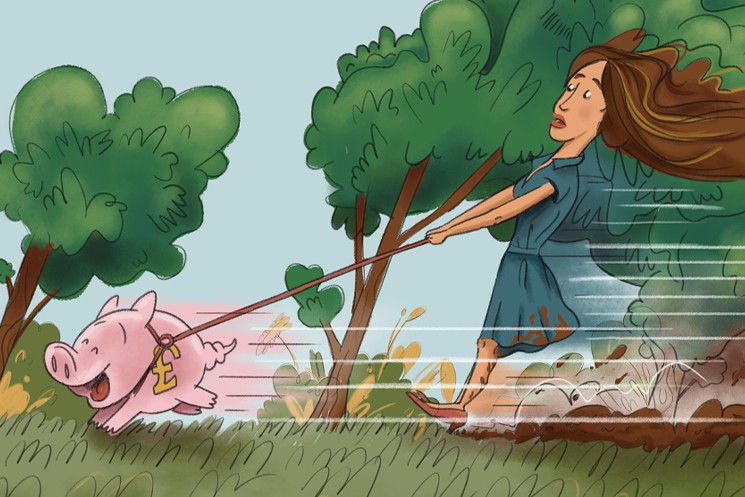This works out at approximately £13,000 per pension pot and the primary reason identified for this was simply failure to update the pension provider when moving house. It may be optimistic to assume that a forgotten pension pot of considerable size is sitting somewhere in your name waiting to be claimed but this is the reality for a great many individuals in the UK.
This may also be associated with the phenomena of job hopping becoming more and more commonplace. With the dawn of auto enrolment this can mean numerous pensions with multiple providers, each with its own various features. With so many schemes and the associated paperwork that comes with them it can be a struggle to keep up to date with what you have and this ultimately leads to schemes being lost.
There are steps you can take to avoid this happening and you may be glad to hear that in 2017 more than 375,000 attempts were made to contact customers which led to £1 billion in assets being reunited with the account holder but this is still a small fraction of the total left unclaimed.
The simplest solution would be to contact your pension provider and let them know of a change in your address whenever this occurs. However, it is often not that simple and as individuals move from job to job and house to house it may become increasingly difficult to keep track
of what you have.
Another option would be to consolidate your pensions. By combining the contracts it makes it easier to keep track of and manage these savings. Some schemes benefit from economies of scale and so larger balances may lead to lowered overall charges or you may wish to capitalise on a feature of an existing pension scheme that is not available in your other policies. Older contracts may have higher charges, less flexible methods to access your funds at retirement, limited online functionality or a limited array of investments and so a consolidation could help to meet certain financial objectives.
It can be a struggle to keep up to date with what you have and this ultimately leads to schemes being lost.
There are potential downsides to consolidation as some schemes could have exit penalties that will eat into the pot, the policy may benefit from certain guarantees or safeguarded benefits that are valuable and cannot be replicated by another scheme and, there are certain tax advantages to keeping separate pots where these qualify under the ‘small pots’ rules. Additionally, it is seldom a good idea to transfer out of an existing workplace pension that benefits from employer contributions as these would usually be forfeited on transfer.
When consolidating individuals typically consider either an existing contract such as their active workplace pension as the receiver scheme or they may choose to establish an entirely new contract such as a Personal Pension or SIPP (Self Invested Personal Pension). The key difference between a workplace scheme and a SIPP is that the SIPP typically offers a wider range of investments and can offer greater flexibility at retirement, but will usually cost more than a workplace scheme. If looking to consolidate, the best option for a contract will require research and have to be compared to your existing situation and financial objectives.
In some cases, it is possible for an individual to complete a consolidation process and implementation of a new scheme themselves where desired. This involves filling in the relevant forms and/or speaking with your providers to arrange a transfer. However, as we have learned with the £19.4 billion in unclaimed pensions, paperwork and speaking to providers is not everyone’s strong suit and this ignores the analysis required in order to move forward with an appropriate contract. If you are uncertain as to whether switching out is appropriate for you, then you should seek advice or guidance from a financial adviser.
Some schemes benefit from economies of scale and so larger balances may lead to lowered overall charges.
Ensuring you have your pensions in order could make a considerable difference to your pension in retirement. The FCA published a study of the non-workplace pension industry in 2019, they revealed various findings including; low levels of consumer engagement, consumers assuming they had selected a ‘standard’ investment, charges being highly complex across the market, older and smaller pots attracted higher charges, similar consumers paying materially different charges for broadly comparable products, little switching between products and weak price competition. All of these factors could be to the detriment of your retirement planning and so ensuring correct and thorough analysis is conducted on your existing pensions as well as any prospective new scheme is essential. Andrew Tully, technical director at Canada Life, estimated that £250 billion of pension pots could benefit from consolidation based on this study.
It is ultimately up to you to take control of your pensions. This could be by ensuring your existing schemes are registered with the right address or by considering consolidation whether that be purely for simplification purposes or to access a contract with lower fees, better investment options and/or greater flexibility at retirement or on death. Making sure your pensions are structured in a manner that suits you and your retirement objectives can help to make things considerably easier at retirement. If you are not comfortable tackling such big decisions alone it is possible to seek the help of a financial adviser who will be able to either provide guidance that will help you to come to your own decision or advice where the relevant analysis will be conducted on your behalf with your details in mind and a proper solution found and implemented.
The above pertains to defined contribution (DC) policies. Where considering movement of defined benefit (DB) schemes these will be subject to separate considerations and procedures, as discussed in our article entitled, Should I Stay or Should I go.
Sources
https://www.abi.org.uk/news/newsarticles/2020/05/19.4-billion-of-pension-potsunclaimed-just-because-of-house-moves/
https://www.fca.org.uk/publication/feedback/fs19-05.pdf
https://www.moneymarketing.co.uk/analysis/andrew-tully-250bn-of-pension-pots-couldbenefit-from-consolidation/
At JM Finn we offer a service termed our pension policy summary which lays out the details of a client’s existing policies and provides the basis of a discussion surrounding the features of their pensions and their potential role in retirement planning. Through this document we can highlight any valuable features that may be worth retaining or any number of factors that may be relevant to your situation. With all of the details available it is then possible to make an informed decision as to the most appropriate step forward. Unfortunately we are not yet able to work out whether you are one of the 1.6 million with an unclaimed pension but by familiarising yourself with your schemes and potentially taking some action early it may prevent an extra name being added to that list.
Investment involves risk. The value of investments and the income from them can go down as well as up and investors may not get back the amount originally invested.
The information provided in this document is of a general nature. It is not a substitute for specific advice with regard to your own circumstances.
Any views expressed are those of the author. All figures were correct at the time of going to print. You are recommended to obtain professional advice before you take any action or refrain from action. You should contact the person at JM Finn with whom you usually deal if you wish to discuss any of the topics mentioned.
Click here for more articles from our Pension Report
How do I take control of my pension
Download


